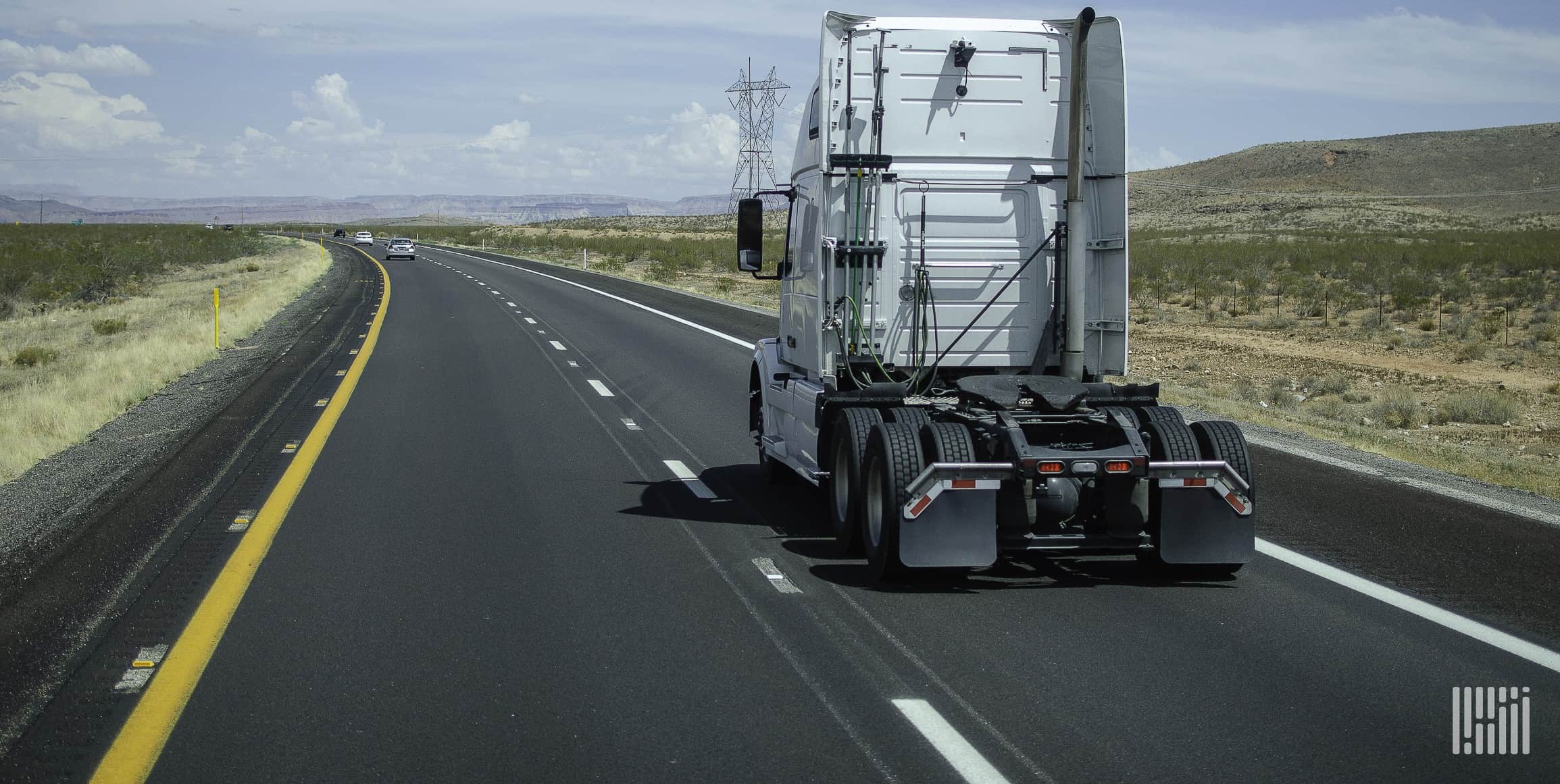The trucking industry has been the backbone of commerce and trade for decades. It’s an ever-evolving domain that offers a myriad of roles and opportunities.
Among the numerous positions in trucking, becoming a power only owner operator is an option that has garnered significant attention in recent years. But why? And what advantages and challenges does it pose? This article sheds light on the intricacies of the profession.
And when you’re finished reading, explore more articles in our ‘Power only trucking’ article series:
- What is power only trucking?
- Pros and cons of becoming a power only owner operator
- How to find owner operator power only jobs
- Best power only load boards
What is power only trucking?
At its core, power only trucking is a specialized segment of the trucking industry. In this setup, an owner operator driver uses their tractor — the ‘power unit’ — to transport trailers owned by clients. It is distinct from traditional trucking where the driver owns both the truck and the trailer.
The power only trucking meaning stems from the fact that the operator provides only the ‘power’ (the tractor) and not the trailer. Such an arrangement naturally leads to specific advantages and drawbacks that potential drivers should consider.
Which types of trailers are used in power only trucking?
One of the exciting aspects of this profession is the variety of trucking trailers one might haul. Knowledge about the different types of trailers for semis is crucial. They include:
- Dry vans: The most common type, used primarily for transporting boxed or palletized cargo
- Flatbeds: Open trailers suitable for large equipment and heavy loads
- Reefers: Refrigerated trailers for transporting perishable goods
- Specialty trailers: These can be designed for specific goods or oversized cargo
Pros of becoming a power only owner operator
- Flexibility in operation: One of the primary reasons many drivers opt for this role is the flexibility it offers. Unlike traditional employed drivers bound by company schedules, drivers of power only trucks can choose their loads, routes, and even downtime.
- Quick turnaround: Power-only loads often involve drop and hook scenarios, which means less time waiting for loading and unloading, increasing efficiency and saving time. Ultimately this can lead to increased revenue.
- Potential for higher earnings: By directly liaising with shippers or brokers, there’s potential for securing higher power only trucking rates. Without the confines of a company’s set rate structure, and armed with some cost savings ideas, the owner operator driver can often achieve better profitability.
- Reduced expenses: Entering the world of trucking can be capital-intensive. In fact, it’s one of the biggest cons of being a truck driver on your own. However, by focusing solely on power only trucking, the need for a significant initial outlay on a trailer is eliminated. When you consider the cost of trailers, this can translate to substantial cost savings.
- Lower ongoing costs: Power only trucking also lowers your ongoing costs. By not owning a trailer, you can save on maintenance and repair expenses, insurance, storage space, and registration fees.
- Diverse job opportunities: Armed with knowledge about various types of trailers, an owner operator driver isn’t restricted to specific jobs. They can transport a range of power unit only loads, from refrigerated food items in reefers to heavy machinery on flatbeds.
- Independence: There’s an undeniable allure to being one’s boss. Crafting a personal brand, setting personal standards, and establishing a reputation in the trucking industry — all these are possible when you are both the owner and operator.
Cons of becoming a power only owner operator
- Potential for inconsistent work: The freedom to choose also means the uncertainty of irregular work, especially when starting. While the quick turnaround of jobs is a pro, it also means there’s potential downtime between contracts.
- Greater responsibilities: Beyond the job of driving, there’s the business side to manage. This encompasses everything from managing truck accident liability, understanding liability issues, staying updated with industry regulations, and handling finances.
- Market unpredictability: Like many industries, trucking is susceptible to economic shifts. Power loads trucking demand can fluctuate, influencing both job availability and rates.
- Stiff competition: With its perks, the role of a power only owner operator attracts many, leading to stiff competition. Building a reputation and consistently securing lucrative loads requires time, effort, and strategy.
- Less control: As you don’t own the trailer, you have less control over its condition. You may encounter trailers that are not well-maintained or suitable for your tractor.
- Possible extra costs: Depending on the contract terms, you might be responsible for certain repairs or maintenance on the trailer while it’s in your possession, which could add to your costs. Accessorial charges are another consideration.
- Compatibility issues: There might be situations where your power unit might not be compatible with the trailers provided by some shippers, causing delays or inability to complete the task.
Weigh the pros and cons of owner operator trucking carefully
When contemplating power only trucking pros and cons, it’s essential to consider both the benefits and challenges. The profession isn’t merely about understanding ‘what is power only in trucking’ or recognizing the types of trailers. It’s about gauging whether the independence, potential for higher earnings, and operational flexibility outweigh the responsibilities, costs, and uncertainties.
For those mulling over this career path, remember that success often comes down to preparation, adaptability, and continuous learning. Research extensively, understand the nuances like accessorial fees, and network within the industry.
All truck driving jobs demand dedication, resilience, and a passion for the road. But for those who find their rhythm, it can be a deeply rewarding and profitable venture.
FAQ
Power only trucking can be worth it for those seeking flexibility and reduced initial investments, but its value largely depends on individual preferences and business goals. However, potential dependency on load availability and possible equipment compatibility issues should also be considered.
The benefits of power only trucking include increased flexibility in job selection, cost savings from not owning a trailer, varied work opportunities with different trailer types, and a quicker turnaround with drop and hook scenarios. Additionally, there’s typically a lower barrier to entry, making it more accessible for new entrants in the trucking industry.
The best load board for power only owner operator jobs depends on region and individual user preferences. Platforms like Truckstop.com are popular choices among owner operators.



